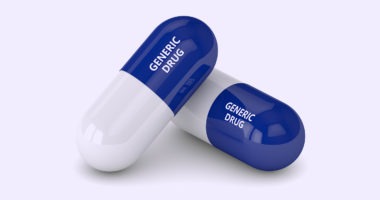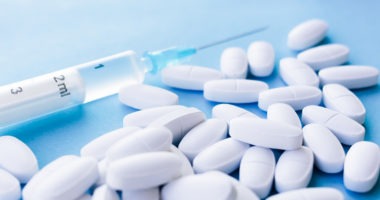The Top 10 Moves Impacting the Dosage-Form Market
This year thus far has seen several high-profile deals and expansion moves in the contract development and manufacturing sector for drug products. So what moves should be on your radar?
There have been several noteworthy moves shaping the competitive landscape of contract development and manufacturing organizations (CDMOs) and contract manufacturing organizations (CMOs) of drug products as well as excipient manufacturers. DCAT Value Chain Insights highlights the top 10 moves thus far in 2017.
The top 10 moves thus far in 2017
1. Thermo Fisher’s $7.2-billion acquisition of Patheon. Among the largest deals in the market for formulation development and drug-product manufacturing is Thermo Fisher’s $7.2-billion acquisition of Patheon, a deal completed in August 2017. The acquisition of Patheon provides Thermo Fisher with small- and large-molecule development and manufacturing capabilities as well as formulation development and drug-product manufacturing. Thermo Fisher’s products and services support research, clinical trials, and production and includes clinical trials logistics services. Patheon, which has approximately 9,000 employees worldwide, generated 2016 revenue of approximately $1.9 billion and has become part of Thermo Fisher’s Laboratory Products and Services with the close of the deal.
|
Table I: Top 10 Moves in the Dosage-Form Market in 2017 |
| News development |
| 1. Thermo Fisher’s $7.2-billion acquisition of Patheon |
| 2. Lonza’s $5.5-billion acquisition of Capsugel |
| 3. Fresenius Kabi’s pending $4.75-billion buy of Akorn |
| 4. AMRI goes private |
| 5. Catalent’s pending $950-million acquisition of Cook Pharmica |
| 6. The mega merger of The Dow Chemical Company and DuPont |
| 7. Avantor’s pending $6.4-billion acquisition of VWR |
| 8. Catalent’s acquisition of Accucaps |
| 9. Lubrizol’s LifeSciences $60-million expansion |
| 10. Other expansions |
|
As iof Septemmber 19, 2017. Compiled by DCAT Value Chain Insights editorial staff. |
In terms of expansions, in late June 2017, Patheon announced further investments of approximately $45 million at various sites across its global network, which included services to support formulation development and drug-product manufacturing. At its active pharmaceutical ingredient (API) development and manufacturing site in Florence, South Carolina, Patheon will be adding commercial spray-drying capabilities to complement the existing development capabilities at the company’s low-solubility center of excellence in Bend, Oregon. The 15,000-square-foot dedicated suite will contain two spray dryers for development- and commercial-scale spray-dried dispersion services. The suite is expected to be on line in 2019. At its Bend, Oregon site, the company plans to expand existing development spray-dried dispersion capabilities with a new cGMP analytical lab, manufacturing suite, and additional development-scale spray drying.
In addition, Patheon has invested in a new commercial sterile-product manufacturing facility at its site in Monza, Italy. The facility will house three, 40-square-meter lyophilizers with associated eight-headed integrated filling equipment for both lyo and liquid formulations for small and large molecules in a range of vial specifications. Patheon also plans to expand its sterile-product Pharmaceutical Development Services at the Monza facility to provide development services for both small- and large-molecule injectable products (liquid and lyo formulations), which will be operational in mid-2019.
Patheon is also expanding its packaging and serialization capabilities at its site in Greenville, North Carolina. The company has built a new filling and packaging suite and upgraded another of its packaging lines with new technology to improve efficiency and reduce change-over time. The newly constructed 4,800-square-foot suite will come on line this fall.
2. Lonza’s $5.5-billion acquisition of Capsugel. Lonza, a contract manufacturer of APIs (small molecules and biologics), made a large play with its $5.5-billion acquisition of Capsugel, a provider of dosage forms, in a deal completed in July 2017. With the acquisition of Capsugel, Lonza positions itself in the drug-product services sector by gaining oral dosage delivery technologies, including a position in hard-capsule technologies.
The acquisition follows Lonza’s opening in November 2016 of a new 1,300-square-meter facility in Basel, Switzerland with drug-product services laboratories with an initial focus on formulation development, drug-product analytical development, and quality control for parenteral dosage forms. In August 2017, Lonza reported it is expanding both capability and capacity at the company’s facility in Basel, Switzerland, including new capabilities for drug-product process development.
3. Fresenius Kabi’s pending $4.75-billion buy of Akorn. Although Fresenius Kabi’s $4.75-billion pending acquisition of Akorn, a Lake Forest, Illinois-headquartered specialty generic pharmaceutical company, was driven by the companies’ positions in specialty pharmaceuticals, both companies also have contract manufacturing activities. Fresenius Kabi, which provides contract sterile manufacturing services through its Fresenius Kabi Product Partnering division, will boost its contract sterile manufacturing capabilities with the acquisition of Akorn, which also offers that service. Akorn has five manufacturing facilities in Decatur, Illinois; Somerset, New Jersey; Amityville, New York; Hettlingen, Switzerland; and Paonta Sahib, India. The deal, which was announced in April 2017, is expected to close in early 2018.
4. AMRI goes private. In late August 2017, Albany Molecular Research Inc. (AMRI), a contract research, development, and manufacturing organization, closed on its acquisition by affiliates of The Carlyle Group, an investment firm, and GTCR LLC, a private-equity firm. AMRI is an end-to-end provider offering contract services for drug-discovery services, small-molecule API development and manufacturing, and drug-product development and manufacturing. Its drug-product segment provides formulation through commercial-scale production of liquid-filled and lyophilized injectable products and ophthalmic formulations.
5. Catalent’s pending $950-million acquisition of Cook Pharmica. With impact for contract parenteral-drug development and manufacturing, in September 2017, Catalent agreed to acquire Cook Pharmica, a CDMO of biologic-based drug substance and parenteral drug products, for $950 million, in a deal that is expected to close in the fourth quarter. Cook Pharmica has capabilities in biologics development, clinical and commercial cell-culture manufacturing, formulation, finished-dose manufacturing, and packaging. The deal complements each company’s strength in biologic drug-substance manufacturing but on the drug-product side, the acquisition will add to Catalent’s core strength in formulation development and drug-product manufacturing for parenteral drugs. Cook Pharmica provides services to formulate, fill, and package product into a final vial or prefilled syringe presentation.
6. The mega merger of The Dow Chemical Company and DuPont. The mega merger of The Dow Chemical Company and DuPont, announced in December 2015 and completed in late August 2017, has impact for the excipients market. The combined entity is operating as a holding company under the name DowDuPont and has pro forma sales of approximately $83 billion, placing it as the number one chemical company in the world ahead of the previous number one global chemical company, BASF. DowDuPont has three divisions (Agriculture, Materials Science, and Specialty Products) with plans to separate each business into independent companies over the next 18 months. The Specialty Products Company will house the company’s pharmaceutical ingredients business, including excipients. Medical packaging, including pharmaceutical packaging, would be part of the new Materials Science Company.
7. Avantor’s pending $6.4-billion acquisition of VWR. In another large-scale deal of suppliers, Avantor, a supplier of ultra-high-purity materials for the life sciences and advanced technology industries, announced in May 2017 that it had agreed to acquire VWR, a provider of product, supply-chain, and service solutions to laboratory and production customers, for approximately $6.4 billion. Avantor provides performance materials and solutions for the production and research needs of approximately 7,900 customers across the biotechnology, pharmaceutical, medical device, diagnostics, aerospace and defense, and semiconductor industries. Avantor’s product portfolio includes more than 30,000 products, including excipients. VWR, headquartered in Radnor, Pennsylvania, is a provider of product and service solutions to laboratory and production customers with sales in excess of $4.5 billion. In July 2017, Avantor opened a new life-science research center in Bridgewater, New Jersey to support a full range of upstream and downstream processes, from gene to protein expression through final formulation and drug delivery.
8. Catalent’s acquisition of Accucaps. In February 2017, Catalent completed its acquisition of Accucaps Industries Limited, an Ontario, Canada-based developer and manufacturer of over-the-counter (OTC), high potency, and conventional pharmaceutical softgels. The acquisition complements Catalent’s global OTC and prescription pharmaceutical softgel capabilities and capacity, adding a portfolio of products supplied to pharmaceutical companies in North America, and two facilities offering integrated softgel development, manufacturing, and packaging. Accucaps’ more than 500 employees at its two facilities in Windsor and Strathroy, Ontario, join Catalent’s global network of 11 softgel technologies facilities. Accucaps’ facilities house blistering, bottling, and other packaging capabilities as well as high-potency prescription softgel development and manufacturing expertise that complement Catalent’s capabilities.
9. Lubrizol’s LifeSciences $60-million expansion. Among the largest expansions announced by a CDMO/CMO, In June 2017, Lubrizol Corporation announced a $60-million investment in its LifeSciences business, focusing on new product solutions, capacity expansions, and additional cGMP manufacturing to strengthen its excipients, polymers, drug formulation and manufacturing, and medical device contract manufacturing capabilities. Additionally, commercial drug-product manufacturing will be added at the company’s Particle Sciences facility in Bethlehem, Pennsylvania adjacent to the company’s existing development and clinical trial manufacturing site. The space is expected to be operational in the fourth quarter of 2017 and will accommodate both sterile and non-sterile products, highly potent compounds, and organic-solvent processing. Lubrizol LifeSciences is also investing to expand its global facilities for excipients, polymers, and contract manufacturing. This capital investment will impact multiple sites to increase in-house engineering capacity, which includes design, manufacturing, and sterilization technology for producing interventional catheters and long-term implantable devices.
10. Other expansions. Other CDMOs and CMOs have announced or have completed expansions thus far in 2017. Some key highlights are noted below.
- Earlier this year, AB BioTechnologies, a drug-development services company located in Bloomington, Indiana, announced plans to add contract clinical manufacturing operations by investing $10.5 million to construct and equip a 23,000-square-foot facility. The facility will include a manufacturing area for formulating, filling, lyophilizing, and packaging drugs for early-phase clinical trial studies. The company plans to open the new facility in November 2017.
- Alcami, a CDMO of APIs and drug products, is investing approximately $5 million to expand its filling and freeze-drying operations at its facility in Charleston County, South Carolina.
- Almac Group, a Craigavon, Ireland-based CDMO, is expanding in Dundalk, County Louth, Ireland, where it secured premises to build a new facility. Almac will make an undisclosed multi-million British pound investment in the new facility, which will be used by Almac Pharma Services and Almac Clinical Services. The new premises increase Almac’s European footprint by 32,000 square feet. The investment follows Almac’s previous announcement of approximately £27 million ($34 million) to expand its operations at its global headquarters in Northern Ireland and in North America and to increase its global headcount to 5,000.
- In April 2017, Catalent announced that it increased its spray-drying capacity at its San Diego, California facility. Catalent gained the facility with its 2016 acquisition of Pharmatek Laboratories, a CDMO, in September 2016. The acquisition provided Catalent with early-phase drug-development capabilities, spray-drying capabilities, and expanded Catalent’s capability for handling highly potent compounds
- In September 2017, CordenPharma completed an early-development suite for highly potent, oral solid dosage products at its site in Plankstadt, Germany. The new facility allows for the production of small batches from 100 g to approximately 1,000 g. The investment in CordenPharma Plankstadt is the latest of several announced investments made by CordenPharma during 2017, where further capacity expansion and capabilities were installed in CordenPharma Colorado and CordenPharma Plankstadt.
- Grifols, a Barcelona, Spain-headquartered healthcare company specializing in plasma-derived proteins and contract manufacturer of sterile solutions, recently made investments in sterile manufacturing technology with the installation of a fourth form/fill/seal (FFS) line in its manufacturing site in Murcia, Spain. The addition of the new FFS line will increase the company’s flexible bag manufacturing capacity by 30%. Another production line is scheduled to be completed in the company’s Parets del Vallés facility in Barcelona, in the first half of 2018.
- Earlier this year, Pfizer CentreOne, a global contract manufacturing organization embedded within Pfizer, expanded its service portfolio to include contract manufacturing of highly potent solid oral dose medicines. The service will be provided at the Pfizer Newbridge, Ireland facility, now part of Pfizer CentreOne’s contract manufacturing network. The addition of solid oral dose manufacturing of highly potent medicines follows an earlier expansion in February 2017 of Pfizer CentreOne’s fill-finish services at its Kalamazoo, Michigan site, which now provides vial-filling of sterile suspensions along with vial-filling of small molecules and biologics.
- Piramal Pharma Solutions, a CDMO, completed Phase I of a previously announced, two-phase expansion of its sterile manufacturing capabilities at its facilities in Lexington, Kentucky. The $25-million investment, announced in August 2016, is being rolled out in phases.
- In April 2017, Recipharm, a Jordbro, Sweden-headquartered CDMO, opened a newly built GMP suite for clinical-trial-material manufacture at its facility in Research Triangle Park, North Carolina. The suite, which represented a $750,000-investment, is for clinical-trial material up to Phase II for non-sterile dosage forms, including metered-dose inhaIers and semi-solid topical products. Also, earlier this year, Recipharm completed its previously announced acquisition of Kemwell’s pharmaceutical business, Recipharm Pharmaservices Private Ltd, located in Bangalore, India, for Indian rupee 7.98 billion ($120 million).
- Earlier this year Vetter, a Ravensburg, Germany-headquartered CDMO for aseptic filling and final packaging of injectables, began operations in its expanded visual inspection and logistics center in Ravensburg. The company invested approximately EUR 100 million ($107 million) to expand this center to combine capacity for final product inspection and logistics in one site. With the expansion, Vetter now has more than double the capacity for quality-control, cold-storage, and room-temperature storage.






